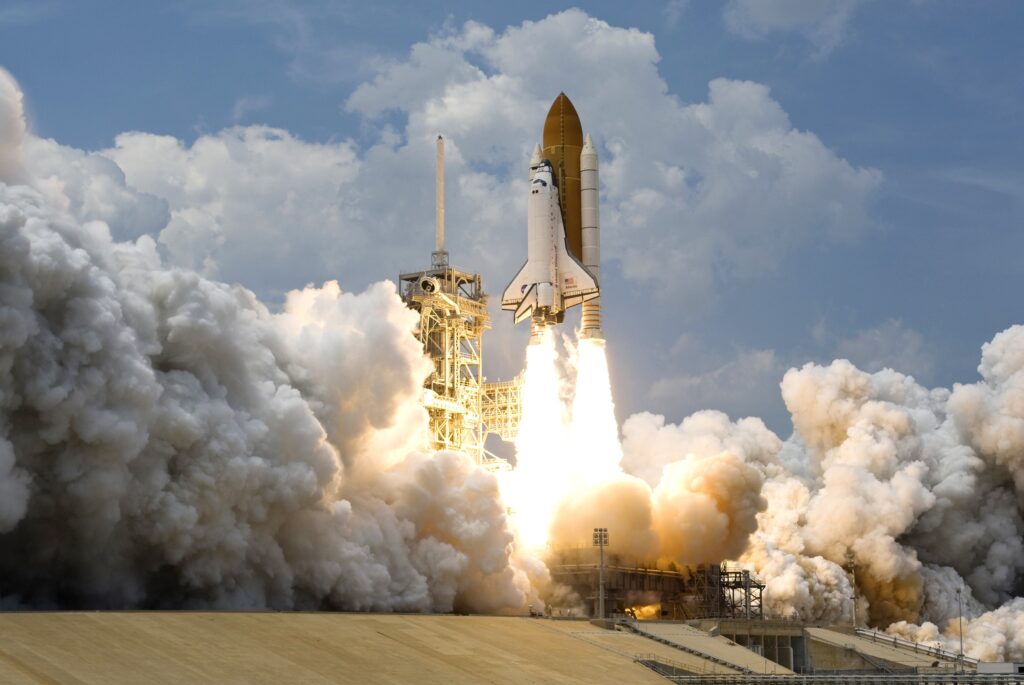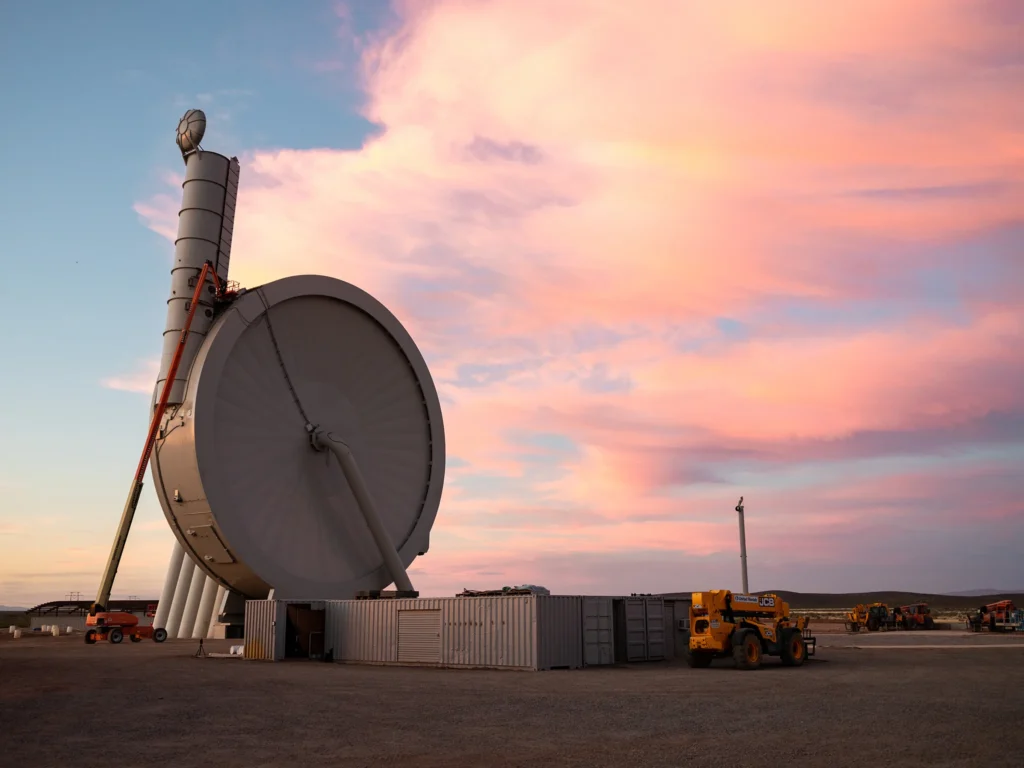In its simplest form, space travel is the process of traveling beyond of Earth’s atmosphere and into the vastness of space. Consider leaving our world and traveling to other galaxies, moons, and other planets. The amazing adventure of discovering what is beyond our sky is space exploration. Why do we even try to travel into space? It’s not only about having fantastic adventures, though. Space exploration is crucial because it teaches us more about the cosmos and Earth. Understanding how everything functions is like seeing through a huge cosmic microscope. Additionally, it may lead to advancements in technology or even methods for protecting the environment that benefit life on Earth.
The interesting world of space travel will be explored in this blog post. We’ll look at how it all started, how it functions, the various space missions, and what the future of humankind in the universe might entail.
Historical Perspective: We look into the visionaries like Konstantin Tsiolkovsky who invented the concept of rocket-powered space exploration in the historical perspective of space travel. This historical trip takes us past crucial turning points including the Sputnik launch, Yuri Gagarin’s momentous orbit, and the Apollo 11 moon landing, all of which marked important advancements in our drive to explore space.
The Science Behind Space Travel
Rockets are the cornerstone technology in space travel science, utilizing the action-reaction principle to propel spacecraft through the vacuum of space.
Venturing beyond Earth’s atmosphere introduces a multitude of challenges:
- Gravity’s Physical Toll: Astronauts’ bodies suffer from the debilitating effects of gravity during prolonged space missions.
- Radiation Hazards: Widespread radiation risks, including solar and cosmic radiation, pose a threat to space travelers.
- Rigorous Training: Astronauts undergo intensive training and preparation, mastering spacecraft operations, spacewalks, and emergency response.
These interconnected components underscore the intricate and astonishing nature of space exploration.
Types of Space Travel
Let’s see the 3 main types of space travel that are often performed:
- Manned Vs Unmanned: Robotic spacecraft are used for unmanned missions, while astronauts are launched into space for manned missions.
- Human Spaceflight Programs: Programmes for sending people into space for research and exploration are known as human spaceflight and are coordinated by organizations like NASA, ESA, and SpaceX.
- Robotic Missions: Robotic missions such as telescopes like Hubble, rovers like Curiosity, and probes like Voyager are essential for gathering data and studying other planets.
Popular Space Travels
- The Moon is still considered to be our closest neighbour. It has seen the historic Apollo missions, and NASA’s Artemis programme, which aims to create a sustained human presence, has reignited interest in the Moon.
- The “Red Planet,” Mars, is the target of intense research by rovers like Curiosity and Perseverance as well as upcoming missions like Mars Sample Return, all of which aim to shed light on Martian riddles and open the door for future human trips.
- Interstellar travel is still a fascinating idea outside of our solar system. This idea is supported by ongoing energy research and innovation, which raises the exciting prospect of one day exploring the far reaches of space.
Technologies
- Spacecraft and Propulsion Systems: Advanced spacecraft and propulsion systems, including chemical rockets and ion drives, enable space exploration.
- Space Stations: Space stations like the International Space Station (ISS) serve as research platforms, and future projects promise enhanced international cooperation.
- Space Tourism Developments: Private companies like SpaceX and Blue Origin are pioneering space tourism, offering civilians a chance to experience spaceflight, potentially revolutionizing access to space.
Risks and Challenges
- Health Risks for Astronauts: Microgravity-related health issues and psychological challenges require ongoing research and countermeasures.
- Environmental Concerns: Space missions impact the environment, requiring efforts to minimize space debris and adhere to planetary protection protocols.
- Ethical Considerations: The ethics of space exploration involve questions about human activity’s impact, commercial space resource use, and international responsibilities in preserving the cosmos for future generations. Ethical guidelines and cooperation are essential.
The Future
Businesses in the Private Space
Thanks to trailblazing ventures from private space enterprises such as SpaceX, Blue Origin & Virgin Galactic, we are witnessing a sea change in the space tourism industry with cutting-edge commercial spaceflight technology alongside reusable rockets that cater to reducing launch costs thereby increasing affordable access for common individuals. A notable shift towards private enterprise shaping future directions of space exploration can be observed via SpaceX’s audacious Mars colonization objectives alongside Blue Origin’s vision encompassing lunar exploration.
Space Colonisation and Future Prospects
The idea of colonizing space still has exciting potential outside of our solar system. Even if it’s still science fiction, conversations about interplanetary travel, human homes on Mars, and the hunt for habitable exoplanets are inspiring thoughts and studies. The goal of humans to colonize other planets and possibly other stars could come true in the future.
Benefits of Space Travel
Space travel isn’t just about astronauts in space; it’s about how it helps us here on Earth and inspires us for the future.
Scientific Discoveries
- Understanding Earth: Space missions give us a better view of our planet. They help us study weather, climate change, and even natural disasters like hurricanes. This knowledge is essential for protecting our home, Earth.
- Learning About Other Worlds: We send robots and telescopes into space to explore other planets and stars. This helps scientists learn about different places in our universe and how they work.
Technological Advancements
- Innovative Technology: Space travel drives the development of new technologies. Think about things like GPS, used for navigation in cars and smartphones. It came from space research!
- Better Medical Tools: The tools used in space help improve medical devices on Earth. For example, the ultrasound machine used in hospitals has roots in space technology.
In a nutshell, space exploration helps us by increasing our knowledge, advancing technology, and motivating the next generation to aim high. It’s about building a better world through exploration, not just about astronauts.
Conclusion
Let’s sum up by saying that space travel has a variety of advantages, from advancing our knowledge of the Earth and the universe to advancing technology and motivating future generations. It is crucial to carry on with our cosmic trip since it inspires us to have big dreams and explore the uncharted. The most recent space missions, spreading the wonder of space, and supporting STEM education are all urged for readers to stay interested. We can all look forward to a better future thanks to the exploration of space, which is a never-ending source of inspiration and discovery.



